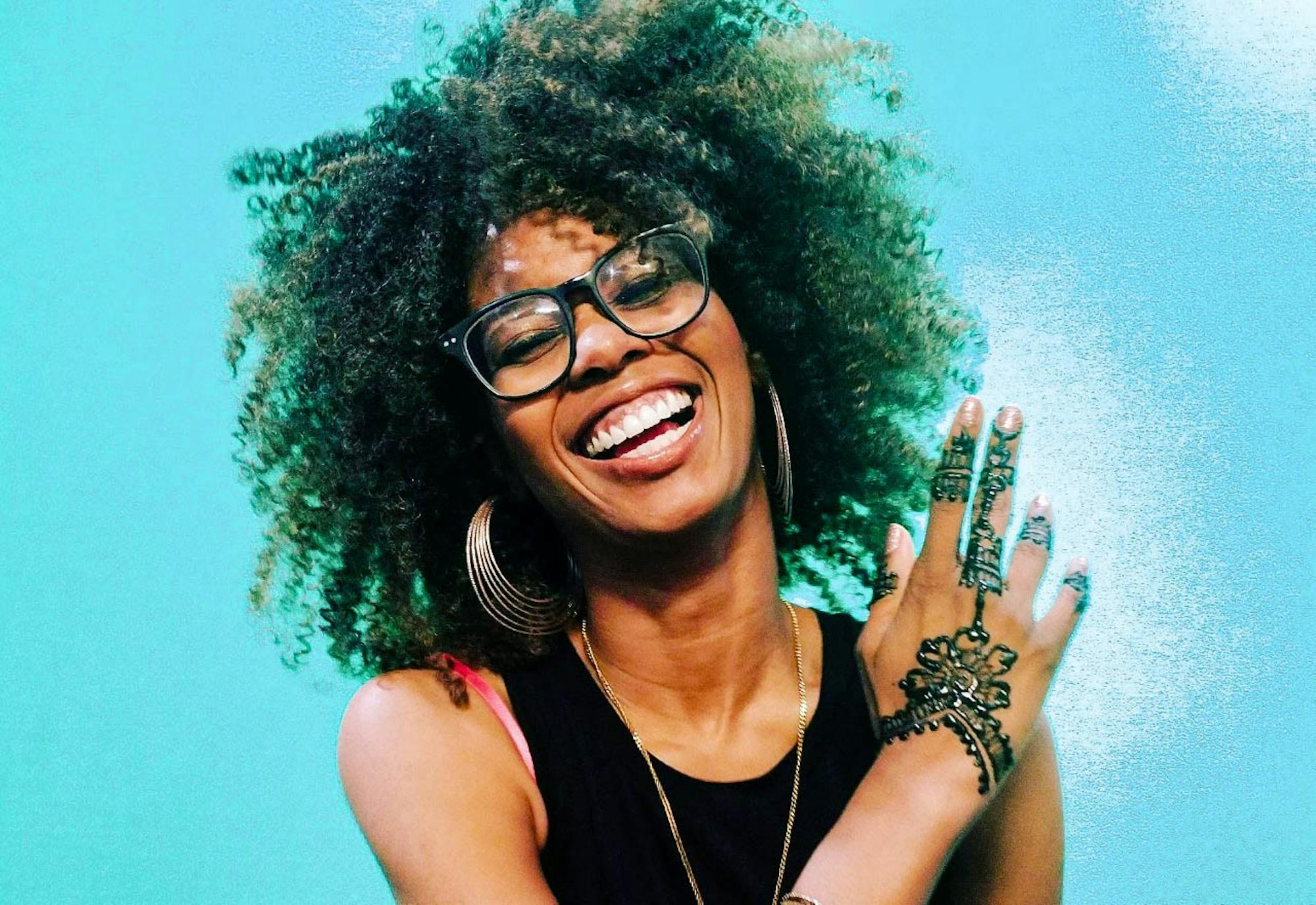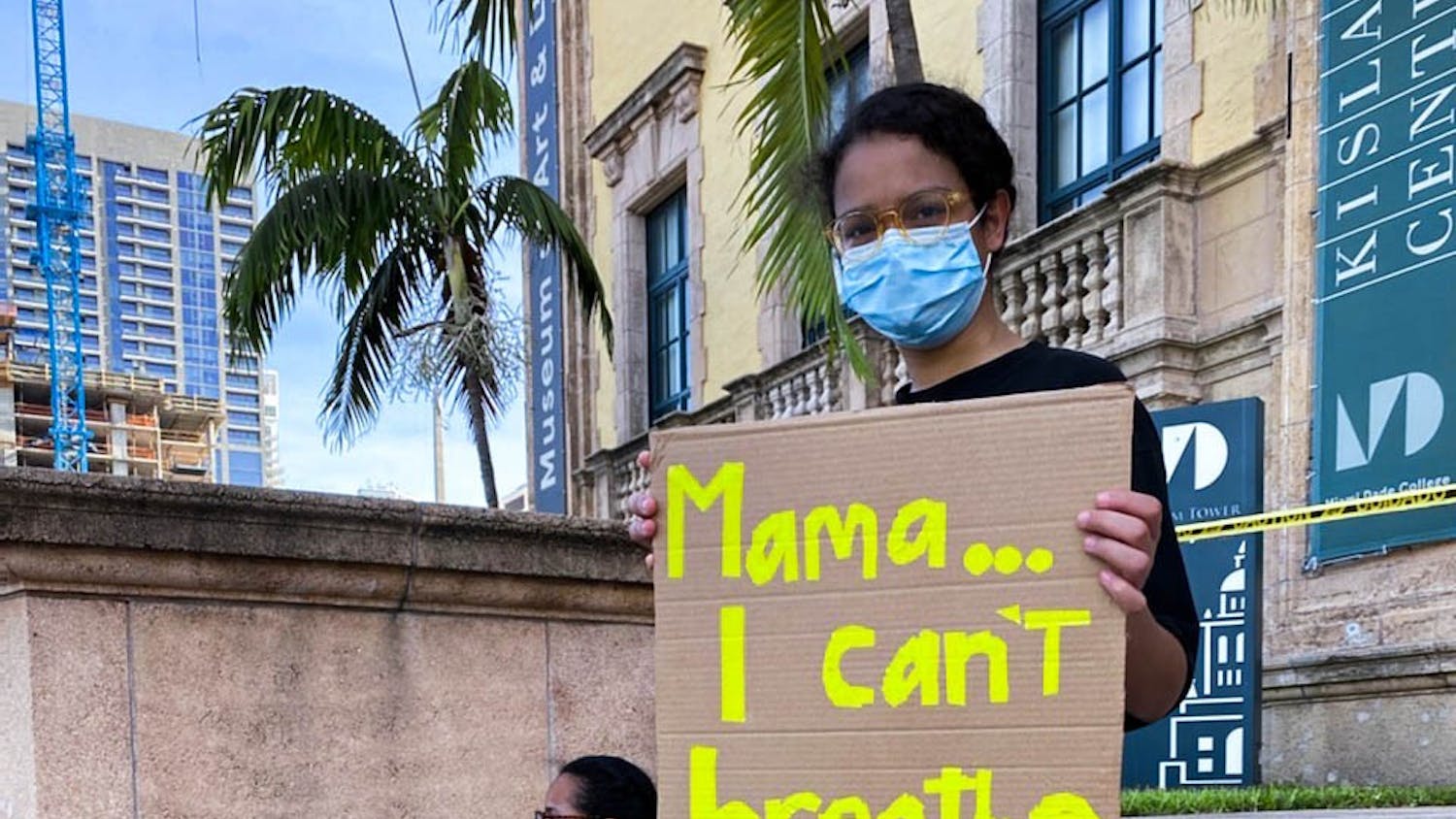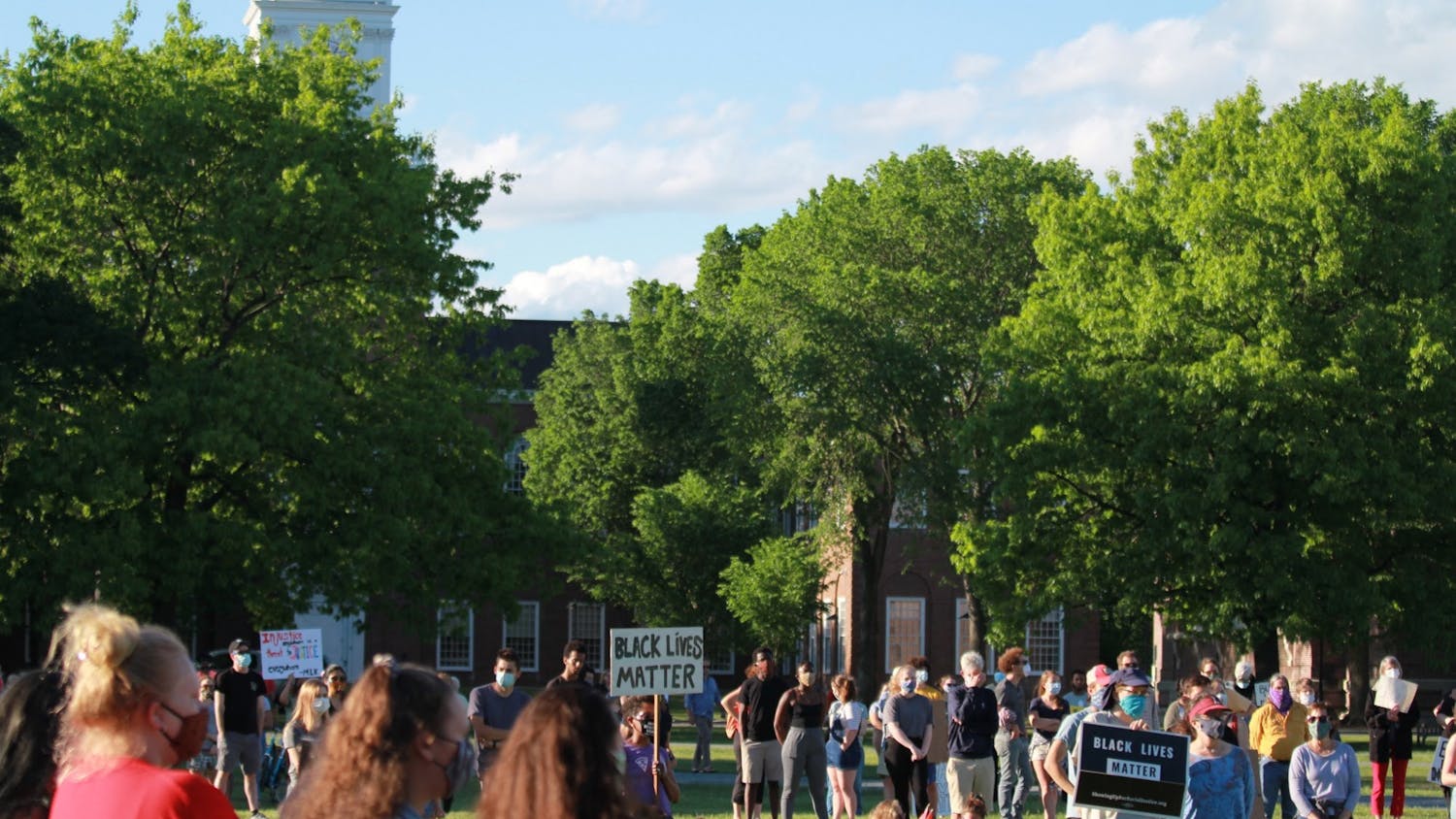The Dartmouth sat down with African and African American Studies and theater professor Shamell Bell to discuss the current state of advocacy for the Black community at Dartmouth and beyond. Bell, one of the original organizers of the Black Lives Matter movement, describes herself as “a mother, community organizer, dancer/choreographer and documentary filmmaker.” At Dartmouth, she has taught classes in radical tradition, the Black arts movement and race, gender and performance.
In our first Q&A with you, The Dartmouth asked about your involvement with the Black Lives Matter movement and your dissertation on street dance activism amid protests against racism and police brutality. Could you tell us about your recent activity with the BLM movement and street dance activism?
SB: I have pivoted more into directly using dance as a form of mobilization, as far as gathering people globally, but as well as shifting frequencies and shifting our collective consciousness using meditation and dance. Street dance activism has now been expanded to include, globally, people who are on a journey to heal themselves alongside each other and also be prepared to dream, imagine and embody the liberation that they wish to see. And when we say embody — they're literally getting together and dancing. That is in addition to partnering with people that are on the ground, moving policies, moving to abolish prisons, moving to abolish certain prison industrial complexes as well as the police and things like that. So we are looking at the pulse of the movement for Black lives or the Black Lives Matter movement — what's happening right now — at the same time as being what I kind of envision as “quantum activists” — activists that are already embodying that liberation and holding space as a healing container for folks who are going to be trying to figure out what happens the day after we actually reach freedom and liberation.
After years of Black-led activism, protests and organizing, the few weeks of protest since George Floyd's killing have seen much faster-paced change. We see lawmakers considering stripping law enforcement of qualified immunity, discussing defunding the police and moving parts of their budgets towards funding social services and more. We also see much larger groups of people gathering to protest all over the world. What do you think is the cause behind what we are seeing today?
SB: In all honesty, I'm going to tell you an unpopular opinion. I think that the push is to save colonialism and capitalism. I'll tell you what I see with what might be perceived as "performative activism," like people putting on kente cloth and kneeling, or a big bank corporation all of a sudden wanting to donate to Black Lives Matter. What's really symbolic about the statements that are going around everywhere when there's still harm being created to the BIPOC community? I think that it is an attempt to save the capitalist model. And I hope that we don't lose sight of what it is that we are really fighting for.
I think there's different levels to everything, and there is a subset of people who are becoming enlightened. They're awakened, they're “woke” now. We all weren't at this level of understanding — we have come a long way. Maybe at one point in time I would have been like, "of course there are good cops. I know a good cop." But when you come to a level of understanding ... about policing as a system and not personalities and not people, then you're better equipped to understand if we're talking about a white supremacist structure.
There are people who are not really interested in Black Lives Matter, but they need to say that they are in order for Black people not to divest completely. What I've been suggesting is that people don't necessarily want freedom or liberation — they just don't want to be oppressed. And so that's kind of what I see with there being such an influx of everyone saying "Black lives matter."
There are people that we are very excited about and proud that they have come to this level of understanding, and we need to be compassionate that we weren't always in that level of understanding. We weren't always where we are now. There's growth and we are all proud of that growth.
There appears to be a shift from respectability tactics in protesting, such as behaving peacefully regardless of circumstance, for instance. Community organizers and activists, especially those belonging to younger generations, are increasingly finding new, more creative strategies of protest. How do you view these changes and what are the tactics that will shape the future of advocacy in your opinion?
SB: Definitely there is a shift away from respectability politics and also a shift away of tone policing. Just because someone is passionate and they may be a bit “aggressive,” that should not prevent someone from being able to listen, right? You should still be able to listen regardless of who is speaking. I think what this movement is that all Black lives matter. That means you have to listen to the communities that focus on trans lives. You have to focus on people who may be the “undesirables.”
I think what we see now is more of an opening up of who we seek as knowledge producers. We have these organizers who are coming from all different walks of life, different levels of education and even different levels of understanding to realize that everyone has a lane. And I think that that's what's key. It does not matter what community you're from. Every single person is in this fight right now. So it's no longer a division between activists and academics. You're not allowed, at this point, to not be involved in the shift. For example, I was just able to use dance because I was a choreographer and I asked myself what I should do. I had no idea that it was going to continue in the movement and the ways that we see it right now, but what I did was I was authentic to who I really was. And I think that's what you're finding right now.
How do you see the role of social media, which brings with it increasing connectedness among people, in shaping this kind of shift in advocacy and bringing about the better kind of living that you're talking about? Or is it perhaps detracting in certain aspects?
SB: Social media plays its role. It was how we were able to create a global movement. It's how we're able to connect and get our ideas out globally. It can also be a detracting measure. Everything is in balance. I think that social media has the opportunity for us to see history in the making, in real time. It gives us more of an opportunity to be present in the moment.
I'm also wanting us to be prepared for different levels of this fight. You know, there may be a time where there's going to be a backlash for everyone saying "Black lives matter." And there's going to be a category of people who are going to be violent, and I'm not talking about Black Lives Matter activists. I'm talking about the people that are going to experience loss of white privilege. There's going to be this other aspect of us having to be mindful of how social media connects militia.
Black Lives Matter was founded in 2013 and has since become one of the largest movements fighting against white supremacy and violence inflicted on Black communities. As an original organizer for the BLM movement, what is your advice for other advocacy organizations trying to grow their visibility and engagement with the public?
SB: The first thing I always tell people is that we didn't know that it was going to be an international movement. I literally was wailing and crying after seeing the murderer of Trayvon Martin being acquitted. And I called a mentor and I said, "what are we going to do? Let's get out in the streets." And then we got together with community so we were moving from more than just an emotional state. We were moving towards action, but we weren't necessarily wanting to get visibility. We were literally trying to be strategic. And we were also trying to come together with our demands. We were trying to figure out what we really want. And so the first step is not focusing on what we don't have. I want to know, what is that day after freedom looking like for you? What does it look like? And so once you can operate and know what you do want and move towards that as a community, there's different lanes of people doing all types of work.
What you contribute and knowing who you are, knowing what you want, finding people that align with that and moving together towards that end is powerful. I know a lot of people were like, "Oh, I can't be an activist because I'm not a public speaker. Or I can't be an activist because I'm not like this." People have a very specific idea of what an activist is. What I am cautioning us all is that we do not have the luxury not to be an activist. Every single one of us has to be involved in this shift. And if they're not able-bodied, it may be an internal thing. It may be with your family. It may be with your children.
You've been at Dartmouth for a year now: how do you view the environment at Dartmouth in terms of inclusivity? What do you think about the state of student advocacy and activism for the Black community?
SB: I do not necessarily focus on Dartmouth as an entity, as an institution, because I know that Dartmouth is not created to make me feel safe, protected, loved or any of those things. So I don't have unreasonable expectations of Dartmouth. I didn't come in thinking that I was going to be the most loved and supported, and that wasn't my experience. So what I then did is I focused on those who loved me. I found community in my classrooms, I showed up in my vulnerability, I showed up in my authenticity and I focused on those who wanted to be in community with me.
Although school is over, my students wanted to do a check-in. What we talk about is their advocacy, we talk about them. I advocate for them as a support system, as a structure, but never have I told them, "this is what you need to do." So what I did is plant a seed. So for me, if you're doing anything in my class, just for me, then you have the wrong assignment and you're doing it wrong. If you're doing it for yourself and your development, as well as your community and your family, and you're using the tools that we're doing in this class, that's the correct method. Then that flows into advocacy in the community. After COVID-19 happened, all of my students were writing letters and signing that they were organizers. And that is not something necessarily I pushed upon them. They come to me sometimes after the fact and I'm like, OK I could have talked to you a little bit more through that process, but they are self aware.
This interview has been edited and condensed for clarity and length.
Correction appended (June 28, 2020): A previous version of this article included a sentence that said Bell “pushed upon” her students. The article has been updated to clarify that Bell said that she did not necessarily push upon her students.




